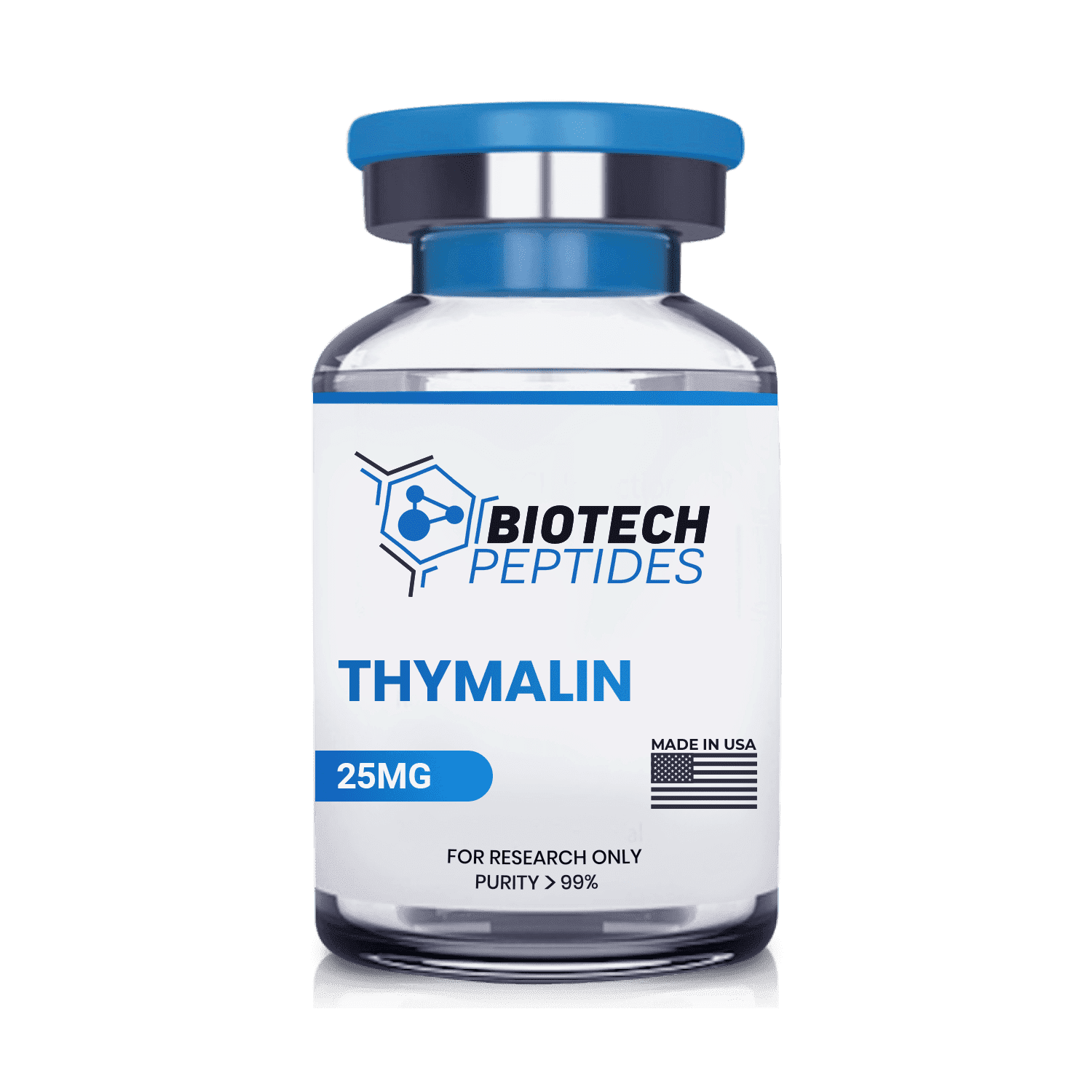
Your body’s thymus gland produces Thymalin, a nonapeptide of nine amino acids (also known as Thymic Factor, Thymulin, and Facteur Thymique Serique). You’ll recognize this if we go through the whole process from beginning to end. H-Pyr-L-Ala-L-Lys-L-Ser-L-Gln-Gly-Gly-L-Ser-L-Asn-OH is Thymalin’s sequence.
Jean-Francois Bach identified and described this peptide in pig blood in 1977. However, it may be found in a variety of mammalian species. There are several reasons why the thymus gland is critical to your body’s capacity to regulate immunity.
Located behind the sternum, the thymus gland lies equidistant between the lungs & slightly above the heart in the middle of the chest. Two lobes make up the structure. The thymus’ rough appearance is due to lobules in each of its lobes. The immune system relies on the development of T cells in a milieu provided by this lumpy gland. T lymphocytes play a vital role in the development of the immune response.
The thymus gland’s main job is to aid in developing T cells. Immature T cells from the bone marrow enter the circulation and eventually mature into functional T cells in the thymus, which serves as the body’s first line of defense against foreign cells, including bacteria and fungi.
As we age, our immune systems weaken, even if we’re in good health. Thymus glands, found in humans, age quicker than other parts of their bodies. Adolescence is when it hits its pinnacle, and by the time people reach middle age, their brains have begun to atrophy and shrink significantly in size and function. Only one-sixth of the thymus’ maximal weight of 37 grams is present at 75. Infection, autoimmune conditions, and cancer are all contracted more likely when the thymus stops working correctly due to the atrophy of the glands surrounding it.
Even though researchers don’t know what causes this alarming rate of atrophy, experts believe that protecting the thymus gland is critical to maintaining health as we get older. So, beginning at the age of 35, it seems sensible to take precautions to safeguard your thymus. When you’re 45 to 55, you’re a lot more proactive.
Our understanding of short peptides is mainly due to the work of Slavic researchers in the 1980s, who discovered a thymic bioregulator known as Thymalin that might help the immune system re-grow.
An additional benefit of thymalin use was the reduction of hypertension and cardiovascular disease risk factors, improved metabolic control, and weight management. Other benefits included:
- Improved endocrine health.
- Decreased incidence of acute respiratory disease.
- Decreased rates of osteoarthritis and osteoporosis.
- Rehabilitated nervous system activity.
The Mechanism Of Action Of Thymalin
In the body’s defensive system, T-lymphocytes (also known as T-lymphoblasts) are developed or “educated” by bone marrow cells. For these cells to become completely functional, they must first go through a period of non-functional development.
Thymulin is one of the numerous hormones generated by the thymus gland, which decreases dramatically after the second year of life and continues to decline as we age.
Reduced ability to develop robust adaptive immune responses to novel antigens in later life is one of two significant immunological indicators of aging: a decrease in thymic T cell production and a decrease in T cell diversity. In treating severe COVID-19 patients, “immunomodulatory therapy” is necessary to reduce the exaggerated inflammatory response and restore profound immunosuppression.
Antiviral defenses are strengthened by the increased production of Th1 cytokines and the maturation of T helper cells, which is made possible by an immunomodulatory compound derived from the thymus of calves. Buy Thymalin peptide if you are a researcher.
